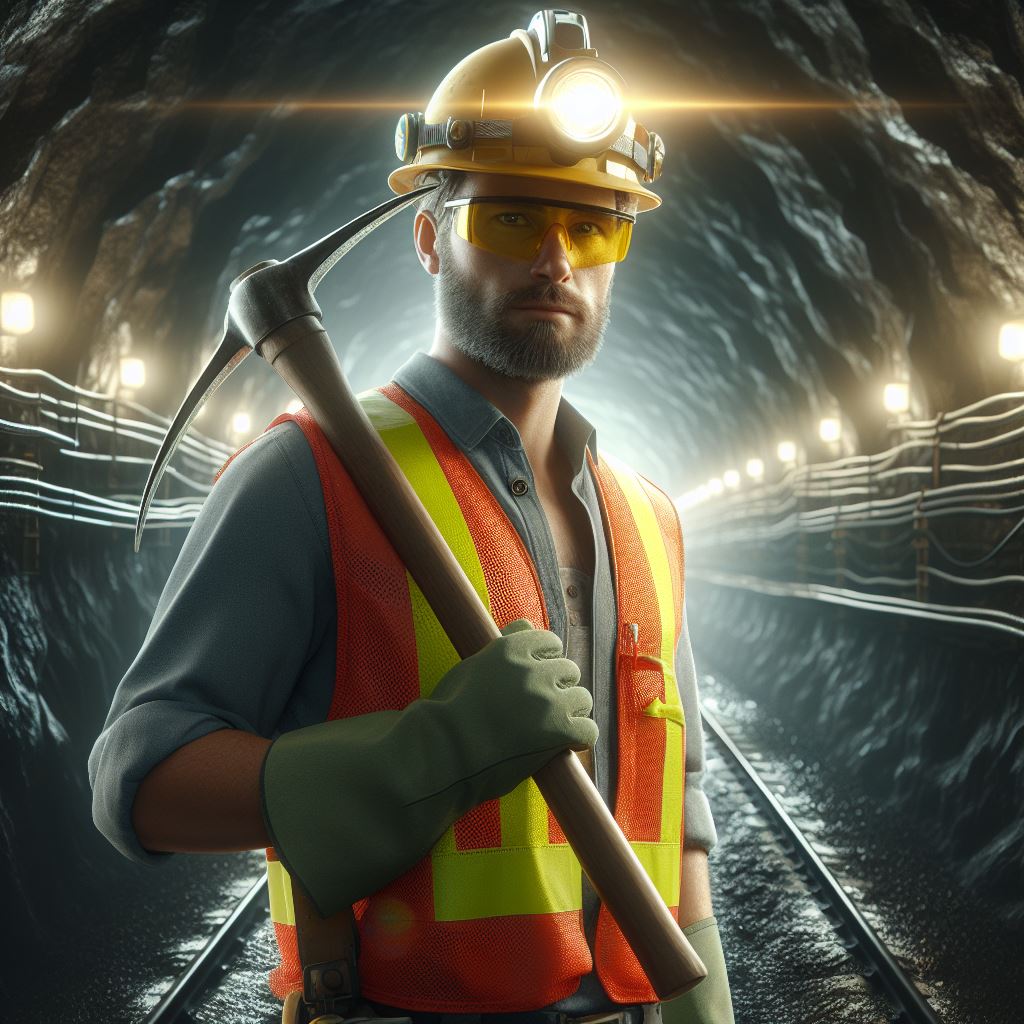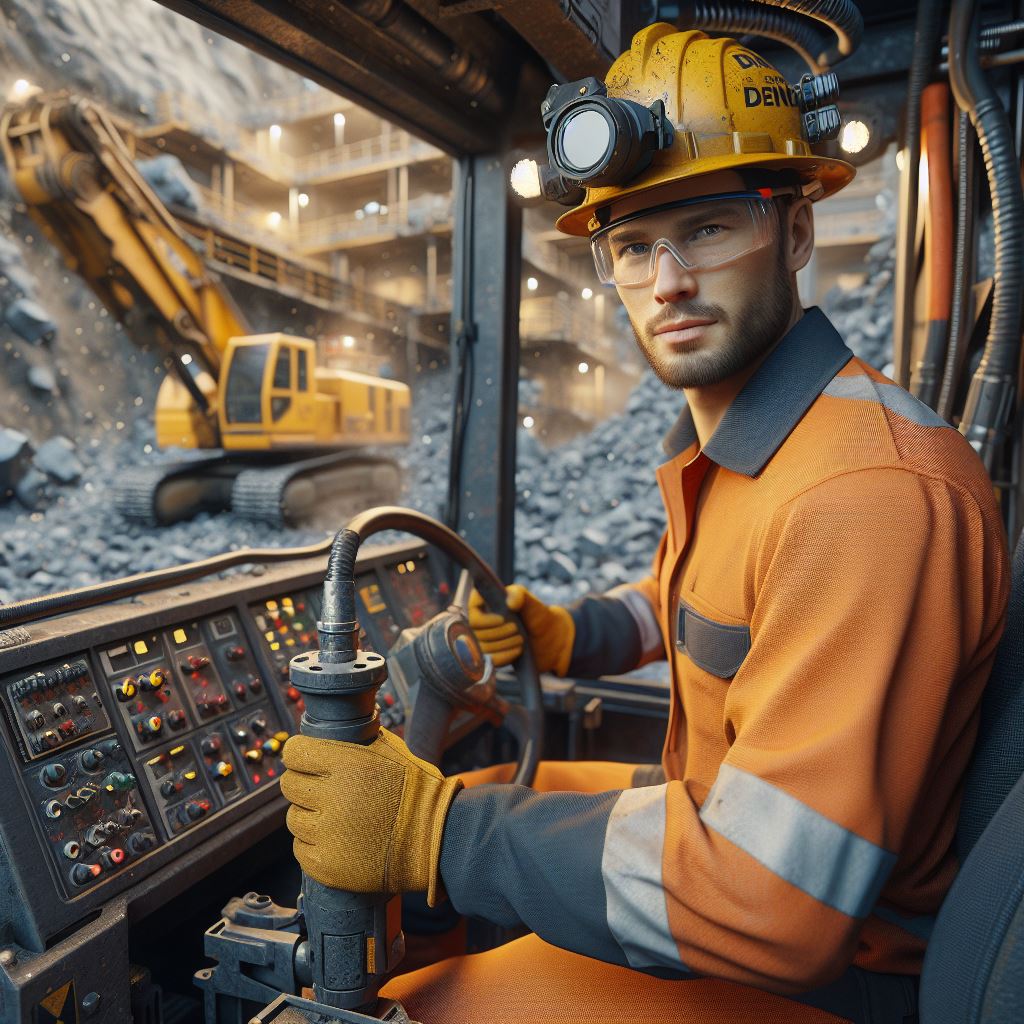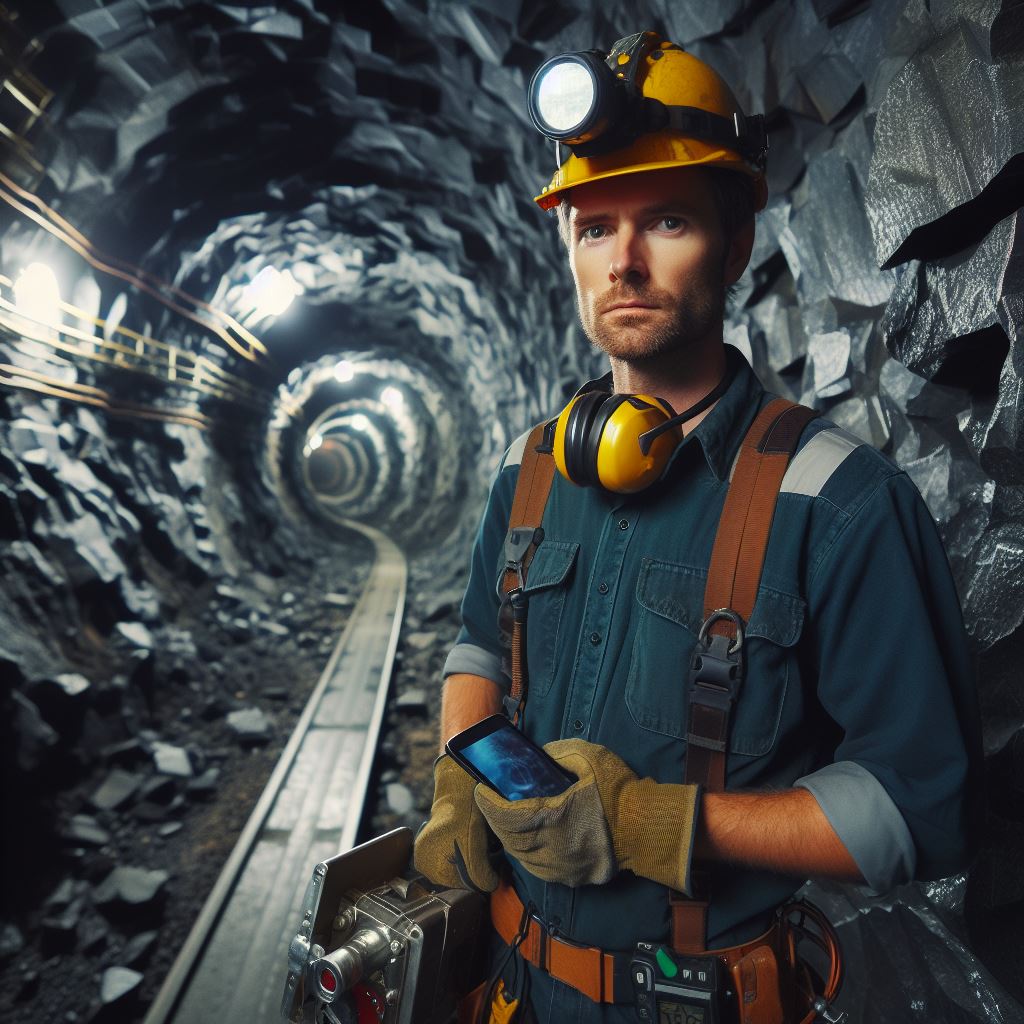Introduction
Mining engineers play a crucial role in managing natural resources and ensuring sustainable extraction. In the current global scenario, their skills are more relevant than ever.
Mining engineers possess the knowledge and expertise to extract resources while minimizing environmental impact.
Their skills in resource management are essential for preserving and conserving natural resources for future generations.
Whether it is minerals, metals, or energy sources, mining engineers ensure their extraction is done responsibly and efficiently.
The importance of mining engineer skills extends beyond extraction; they also focus on reclamation and rehabilitation of mining sites.
By implementing proper management practices, mining engineers contribute to sustainable development and minimize negative ecological effects.
These professionals are equipped with the technical know-how to assess the feasibility and viability of mining projects.
They employ various techniques and technologies to maximize resource recovery and reduce waste.
Mining engineers also work with other stakeholders, including government agencies, communities, and environmental organizations.
They collaborate to address concerns and ensure that natural resources are managed in a socially responsible manner.
Therefore, the skills of mining engineers are instrumental in natural resource management, promoting sustainable development while preserving the environment.
Read: Youth in Farming: Australia’s New Generation
Overview of Mining Engineering
Mining engineers play a crucial role in the extractive industry, contributing to the efficient and safe extraction of natural resources.
Role of Mining Engineers in the Extractive Industry
Mining engineers are responsible for designing and operating mines to extract various minerals and resources from the earth.
They work closely with geologists to identify mineral deposits and determine the feasibility of mining operations.
Your Personalized Career Strategy
Unlock your potential with tailored career consulting. Get clear, actionable steps designed for your success. Start now!
Get StartedAdditionally, mining engineers collaborate with environmental scientists and regulatory agencies to ensure responsible and sustainable mining practices.
Main Responsibilities and Tasks of Mining Engineers
Mining engineers are involved in every stage of the mining process, from exploration to site closure.
They conduct geological surveys to identify mineral reserves and estimate their quantity and quality.
Then, they plan and design mining layouts, considering factors such as safety, productivity, and environmental impact.
Mining engineers also oversee the excavation and extraction of minerals using various mining techniques.
They develop and implement strategies to optimize mining operations, including monitoring equipment performance and ensuring compliance with safety regulations.
Furthermore, mining engineers are responsible for managing the financial aspects of mining projects, including budgeting and cost estimation.
Interdisciplinary Nature of Mining Engineering
Mining engineering is an interdisciplinary field that combines elements of geology, civil engineering, and mechanical engineering.
It requires a comprehensive understanding of geology to locate and evaluate mineral deposits accurately.
At the same time, mining engineers must have strong knowledge of civil engineering principles to design safe and efficient mine structures.
They also utilize mechanical engineering principles to select and maintain mining equipment and machinery.
Furthermore, mining engineers collaborate with professionals from various fields, including environmental science, economics, and legal compliance.
Educational Background and Qualifications Required
Becoming a mining engineer typically requires a bachelor’s degree in mining engineering or a related field.
Courses in geology, mathematics, computer science, and engineering principles are essential for aspiring mining engineers.
Stand Out with a Resume That Gets Results
Your career is worth more than a generic template. Let us craft a resume and cover letter that showcase your unique strengths and help you secure that dream job.
Get HiredSome mining engineering positions may require a master’s degree or specialized certifications in areas such as mine safety or environmental management.
Additionally, hands-on experience through internships or cooperative programs can provide valuable practical skills in the mining industry.
To succeed in this field, mining engineers need strong analytical and problem-solving skills, as well as excellent communication and teamwork abilities.
Continuous learning and staying updated with advances in mining technology and regulations are crucial for mining engineers.
Basically, mining engineers are vital to the extractive industry, contributing to responsible and efficient extraction of natural resources.
With their interdisciplinary knowledge and expertise, they are instrumental in ensuring the safety, sustainability, and profitability of mining operations.
By combining their technical skills with a commitment to environmental stewardship, mining engineers play a critical role in shaping the future of the industry.
Read: Farm-to-Table Movement: An Australian Perspective
Importance of Natural Resource Management
Concept of natural resource management
Natural resource management is a critical concept that is often overlooked in discussions about mining and extraction activities. It refers to the responsible and sustainable use of natural resources to meet current and future needs while preserving the environment.
Significance of sustainable resource extraction
Sustainable resource extraction is a key aspect of natural resource management. It involves extracting resources in a manner that minimizes negative impacts on the environment and ensures their availability for future generations.
This approach recognizes the finite nature of resources and the need to use them wisely.
The environmental, social, and economic impacts of mining activities
The environmental impacts of mining activities can be significant. Deforestation, soil erosion, water pollution, and habitat destruction are just some of the adverse effects that can result from poorly managed mining operations.
These impacts can have long-lasting and far-reaching consequences for ecosystems and biodiversity.
Mining activities also have social implications. Displacement of communities, loss of livelihoods, and conflicts over resource ownership and access are common challenges associated with mining operations.
Furthermore, mining can contribute to the proliferation of informal economies, inequality, and social unrest in affected communities.
From an economic perspective, mining can provide employment opportunities and generate revenues for governments and local communities. However, the economic benefits are often overshadowed by the long-term environmental and social costs associated with mining activities.
The role of mining engineers in minimizing negative impacts and maximizing benefits
Mining engineers play a crucial role in minimizing the negative impacts and maximizing the benefits of mining operations. They are responsible for designing and implementing strategies that minimize harm to the environment and local communities.
This includes ensuring proper waste management, implementing environmental monitoring systems, and utilizing advanced technologies for resource extraction.
Transform Your LinkedIn for Maximum Impact
Elevate your professional brand with a LinkedIn profile that attracts recruiters, showcases your expertise, and maximizes opportunities. Stand out in your industry with a profile built for success.
Boost ProfileMining engineers also collaborate with other stakeholders, including government agencies, local communities, and environmental organizations, to ensure that mining activities adhere to best practices and regulations.
Their expertise in resource management and sustainable development is indispensable in addressing the multidimensional challenges posed by mining operations.
In addition to mitigating environmental and social impacts, mining engineers are also at the forefront of innovation in the industry.
They constantly seek ways to improve resource extraction techniques, minimize waste generation, and reduce energy consumption. This focus on efficiency and sustainability not only benefits the environment but also enhances the economic viability of mining operations.
Generally, natural resource management is of utmost importance in the context of mining activities. It ensures the responsible and sustainable use of resources while minimizing negative environmental and social impacts.
Mining engineers play a crucial role in achieving these objectives through their expertise in resource extraction, waste management, and sustainable development.
By prioritizing the long-term preservation of resources and the well-being of communities, mining engineers contribute to a more sustainable and responsible mining industry.
Read: Indigenous Farming Techniques in Australia

Technical Skills for Mining Engineers in Natural Resource Management
Mining engineers play a crucial role in the management of natural resources by utilizing their technical skills to ensure sustainable mining practices. In this blog section, we will outline the key technical skills required for mining engineers in natural resource management.
Geological Surveying
- Ability to conduct geological surveys to identify potential mineral deposits.
- Knowledge of mapping techniques to create accurate representations of geological formations.
- Proficiency in using advanced tools and technology for data collection and analysis.
Exploration Techniques and Resource Evaluation
- Expertise in various methods of mineral exploration such as drilling, sampling, and geophysical surveying.
- Capability to assess the quality and quantity of mineral resources through comprehensive resource evaluation.
- Aptitude for data interpretation to determine the economic viability of potential mining projects.
Mineral Processing
- Skilled in mineral processing techniques to extract valuable minerals from ore.
- Proficient in designing mineral processing plants and optimizing the recovery process.
- Knowledge of separation processes, including crushing, grinding, flotation, and dewatering.
Mining Equipment Operation
- Ability to operate and maintain mining equipment to ensure safe and efficient mining operations.
- Familiarity with various mining methods, such as open-pit mining, underground mining, and strip mining.
- Expertise in the selection and utilization of appropriate mining equipment for specific mining scenarios.
Mine Design
- Proficiency in mine design software to create detailed plans for mining operations.
- Knowledge of rock mechanics and geotechnical engineering principles for safe mine design.
- Capability to optimize mine layouts, considering factors such as orebody geometry and geotechnical parameters.
Environmental Regulations and Sustainable Mining Practices
- Understanding of environmental regulations and permits required for mining activities.
- Knowledge of best practices for minimizing environmental impact and promoting sustainable mining.
- Awareness of rehabilitation and reclamation techniques to restore mined areas to their original state.
By possessing these technical skills, mining engineers are equipped to effectively manage natural resources while minimizing environmental impact and ensuring sustainable mining practices.
It is important for aspiring mining engineers to acquire and continuously update these skills through education and practical experience.
With the right combination of technical expertise and environmental awareness, mining engineers can contribute to the responsible utilization of natural resources for the benefit of current and future generations.
Read: The Economics of Farming in Australia Unveiled
Find Out More: Mining Engineering: The Aussie Agriculture Edge
Discover More: Career Path: Becoming a Fisherman in Aus
Non-Technical Skills for Mining Engineers in Natural Resource Management
Mining engineers communicate complex information clearly to stakeholders, including regulators, project managers, and community members.
Collaboration with diverse professionals like geologists and environmental scientists is crucial for project success.
Analyzing data helps engineers make informed decisions about resource extraction methods and operational efficiency.
Problem-solving skills are vital for addressing safety, environmental impact, and cost-effectiveness in mining environments.
Effective decision-making considers technical, economic, and social factors in mining projects.
Leadership guides and motivates team members toward achieving project objectives in natural resource management.
Adaptability ensures engineers can adjust approaches to overcome unexpected challenges in mining environments.
Time management is essential for prioritizing tasks, allocating resources efficiently, and meeting project milestones.
Conflict resolution skills facilitate constructive discussions and find mutually beneficial solutions among stakeholders.
Risk assessment evaluates safety, environmental impact, and financial viability throughout mining projects.
Engagement with local communities, indigenous groups, and regulatory authorities fosters successful resource management.
Ethical decision-making prioritizes sustainability, environmental stewardship, and social responsibility in mining projects.
Continuous learning keeps engineers updated with industry advancements and new technologies in natural resource management.
Cultural awareness respects and understands local customs, traditions, and values in mining projects.
Environmental consciousness considers impacts on ecosystems and biodiversity for sustainable mining practices.
Financial literacy ensures cost-effective project management and financial viability of mining operations.
Regulatory compliance adheres to relevant laws and regulations governing the mining industry.
Critical thinking analyzes complex problems and devises innovative solutions in natural resource management.
Resourcefulness finds creative solutions and utilizes available resources to overcome obstacles in mining projects.
Emotional intelligence fosters positive relationships and effective teamwork among mining engineers and stakeholders.
Case Studies and Examples
Mining engineers worldwide implement sustainable practices, minimizing environmental impact and managing natural resources effectively.
In Canada, engineers reclaim and rehabilitate abandoned mine sites, ensuring ecosystem protection and restoration.
In South Africa, engineers mitigate negative effects on water sources, preserving crucial resources for communities.
Brazilian engineers design waste management systems, minimizing waste generation and implementing recycling initiatives.
In the United States, engineers integrate renewable energy sources, reducing dependency on non-renewable resources.
Indonesian engineers innovate land rehabilitation techniques, promoting sustainable land use post-mining.
Chilean engineers develop biodiversity conservation plans, ensuring protection of endangered species and ecosystems.
Ghanaian engineers engage communities, facilitating sustainable livelihood projects and improving quality of life.
Canadian engineers assess environmental impacts, achieving balance between resource extraction and environmental preservation.
Peruvian engineers implement sustainable water management, benefiting both environment and surrounding communities.
Mining engineers globally demonstrate their vital role in natural resource management, fostering sustainability and community welfare.
Conclusion
The main points discussed in the blog post
In closing, the blog post highlighted the essential skills that mining engineers bring to natural resource management. These skills include technical expertise in excavation, resource planning, and mitigation of environmental impacts.
Mining engineers play a crucial role in ensuring the sustainable extraction of resources while minimizing harm to the environment.
Their knowledge and expertise help companies find innovative ways to preserve natural habitats, protect water sources, and reduce greenhouse gas emissions.
Importance of mining engineer skills in natural resource management
Considering a career in mining engineering offers exciting opportunities to contribute to sustainable resource extraction.
With the increasing demand for minerals and energy, the expertise of mining engineers will be invaluable in balancing resource development with environmental conservation.
Encouragement to consider mining engineering as a career path in sustainable resource extraction
For readers interested in pursuing a career in this field, it is recommended to pursue a degree in mining engineering from a reputable university.
Additionally, gaining practical experience through internships and participating in industry conferences can enhance knowledge and skill development.
Call to action or next steps for readers interested in pursuing a career in this field
To stay updated with the latest advancements in this field, joining professional organizations such as the Society for Mining, Metallurgy & Exploration (SME) and attending technical workshops are highly beneficial.
These platforms provide opportunities to network with professionals and learn about emerging technologies and best practices.
Lastly, mining engineers possess the skills and knowledge necessary for sustainable natural resource management.
Choosing mining engineering as a career path ensures a fulfilling profession that contributes to responsible resource extraction and environmental preservation. Take the first step towards a rewarding career in mining engineering today!




